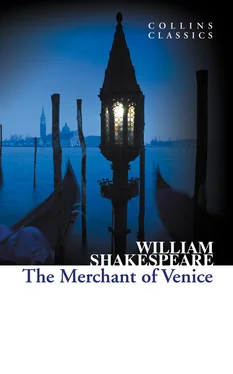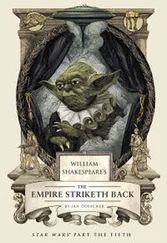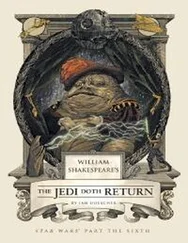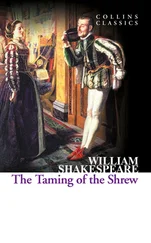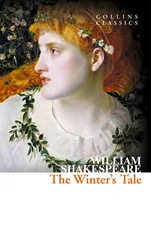Such malevolence should settle our loyalties. Yet it is not as simple as that. Shylock’s exclusion from the glittering society of the play brings him strangely closer to the audience. Comedy conventionally distances so as to highlight large-scale patterns and social groupings. But Shylock, alienated by voice and profession, race and religion, stands nearer to a century equally uncertain about the values of Renaissance civilisation. And the play’s refusal to become his tragedy isolates him further: not a tragic Jew, but one despoiled, cheated, deprived of dramatic weight, robbed finally of any function in a play which proceeds calmly without him. If Antonio is not to be the lamb for the slaughter, then Shylock must be the scapegoat. There is always a cost: even comedy must expel its dissidents.
Thus the final Act retreats doggedly into a beautiful but brittle fantasy world where lovers unite, fathers relent, games conclude, and ships come home. The play which began with ‘a lady richly left’ ends aptly with the news of a deed of gift ‘from the rich Jew’. The symmetry is ironic. Reduced by the triumphant Portia into an off-stage benefactor Shylock becomes part of the mechanism of the comic world. But that world will never be quite the same again. Unlike Fanny, we cannot but be much affected.
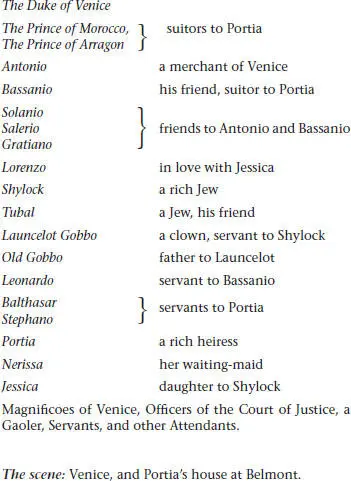
Venice. A street.
[Enter ANTONIO , SALERIO , and SOLANIO .]
Antonio
In sooth, I know not why I am so sad.
It wearies me; you say it wearies you;
But how I caught it, found it, or came by it,
What stuff ’tis made of, whereof it is born,
And such a want-wit sadness makes of me
That I have much ado to know myself.
Salerio
Your mind is tossing on the ocean;
There where your argosies, with portly sail –
| Like signiors and rich burghers on the flood, |
10 |
Or as it were the pageants of the sea –
Do overpeer the petty traffickers,
That curtsy to them, do them reverence,
As they fly by them with their woven wings.
Solanio
| Believe me, sir, had I such venture forth, |
15 |
The better part of my affections would
Be with my hopes abroad. I should be still
Plucking the grass to know where sits the wind,
Peering in maps for ports, and piers, and roads;
| And every object that might make me fear |
20 |
Misfortune to my ventures, out of doubt,
Would make me sad.
Salerio
My wind, cooling my broth,
Would blow me to an ague when I thought
What harm a wind too great might do at sea.
| I should not see the sandy hour-glass run |
25 |
But I should think of shallows and of flats,
And see my wealthy Andrew dock’d in sand,
Vailing her high top lower than her ribs
To kiss her burial. Should I go to church
| And see the holy edifice of stone, |
30 |
And not bethink me straight of dangerous rocks,
Which, touching but my gentle vessel’s side,
Would scatter all her spices on the stream,
Enrobe the roaring waters with my silks,
| And, in a word, but even now worth this, |
35 |
And now worth nothing? Shall I have the thought
To think on this, and shall I lack the thought
That such a thing bechanc’d would make me sad?
But tell not me; I know Antonio
| Is sad to think upon his merchandise. |
40 |
Antonio
Believe me, no; I thank my fortune for it,
My ventures are not in one bottom trusted,
Nor to one place; nor is my whole estate
Upon the fortune of this present year;
| Therefore my merchandise makes me not sad. |
45 |
Solanio
Why then you are in love.
Antonio
Fie, fie!
Solanio
Not in love neither? Then let us say you are sad
Because you are not merry; and ’twere as easy
For you to laugh and leap and say you are merry,
| Because you are not sad. Now, by two-headed Janus, |
50 |
Nature hath fram’d strange fellows in her time:
Some that will evermore peep through their eyes,
And laugh like parrots at a bag-piper;
And other of such vinegar aspect
| That they’ll not show their teeth in way of smile |
55 |
Though Nestor swear the jest be laughable.
[Enter BASSANIO , LORENZO , and GRATIANO .]
Here comes Bassanio, your most noble kinsman,
Gratiano and Lorenzo. Fare ye well;
We leave you now with better company.
Salerio
| I would have stay’d till I had made you merry, |
60 |
If worthier friends had not prevented me.
Antonio
Your worth is very dear in my regard.
I take it your own business calls on you,
And you embrace th’ occasion to depart.
Salerio
| Good morrow, my good lords. |
65 |
Bassanio
Good signiors both, when shall we laugh? Say when.
You grow exceeding strange; must it be so?
Salerio
We’ll make our leisures to attend on yours.
[Exeunt SALERIO and SOLANIO .]
Lorenzo
My Lord Bassanio, since you have found Antonio,
| We two will leave you; but at dinner-time, |
70 |
I pray you, have in mind where we must meet.
Bassanio
I will not fail you.
Gratiano
You look not well, Signior Antonio;
You have too much respect upon the world;
| They lose it that do buy it with much care. |
75 |
Believe me, you are marvellously chang’d.
Antonio
I hold the world but as the world, Gratiano –
A stage, where every man must play a part,
And mine a sad one.
Gratiano
Let me play the fool.
| With mirth and laughter let old wrinkles come; |
80 |
And let my liver rather heat with wine
Than my heart cool with mortifying groans.
Why should a man whose blood is warm within
Sit like his grandsire cut in alabaster,
| Sleep when he wakes, and creep into the jaundice, |
85 |
By being peevish? I tell thee what, Antonio –
I love thee, and ’tis my love that speaks –
There are a sort of men whose visages
Do cream and mantle like a standing pond,
| And do a wilful stillness entertain, |
90 |
With purpose to be dress’d in an opinion
Of wisdom, gravity, profound conceit;
As who should say ‘I am Sir Oracle,
And when I ope my lips let no dog bark’.
| O my Antonio, I do know of these |
95 |
That therefore only are reputed wise
For saying nothing; when, I am very sure,
If they should speak, would almost damn those ears
Which, hearing them, would call their brothers fools.
| I’ll tell thee more of this another time. |
100 |
But fish not with this melancholy bait
Читать дальше
